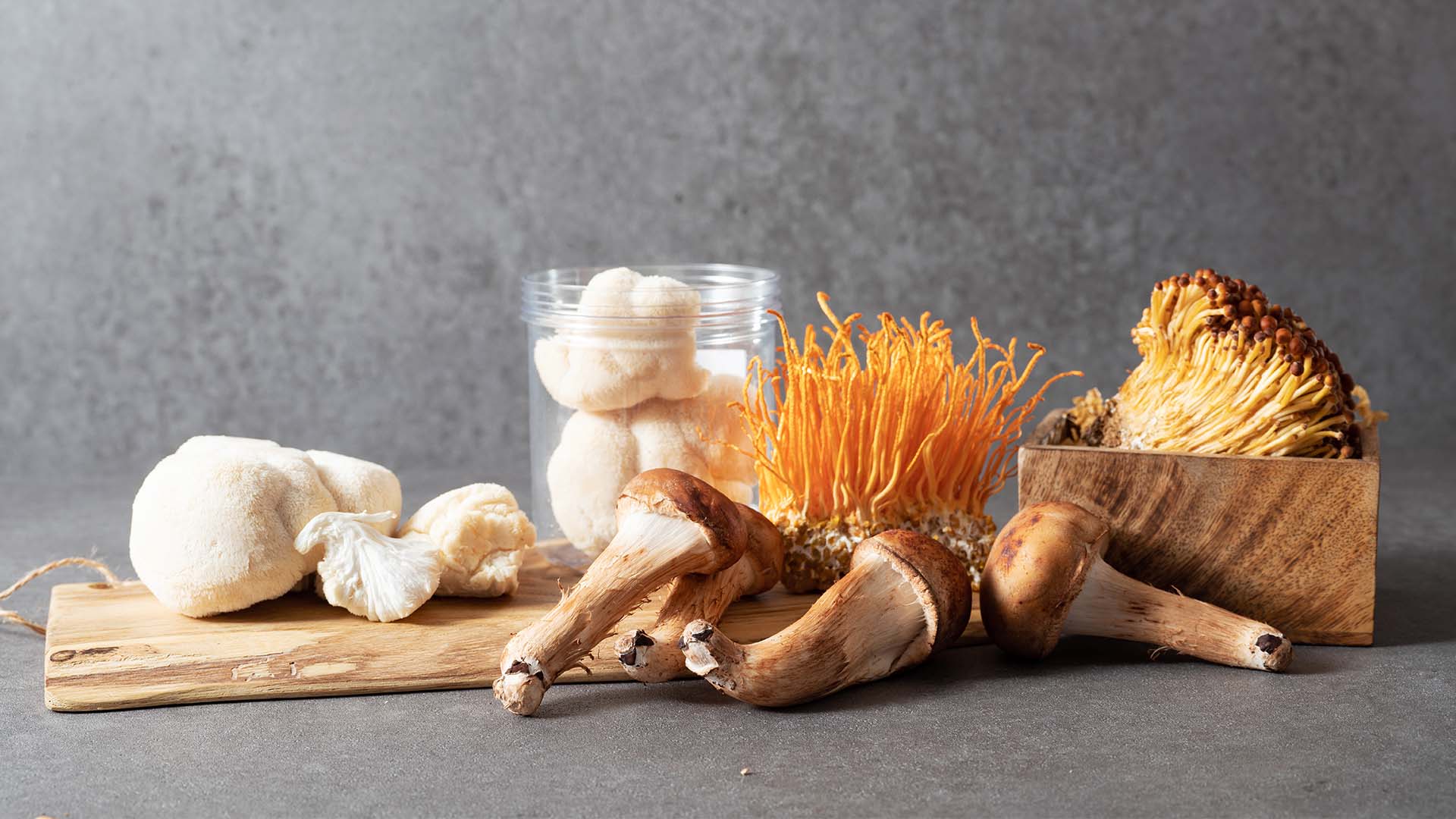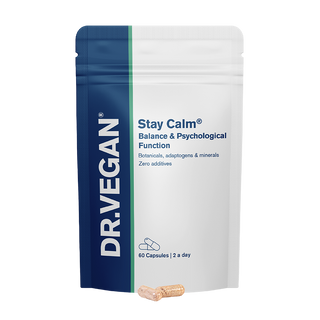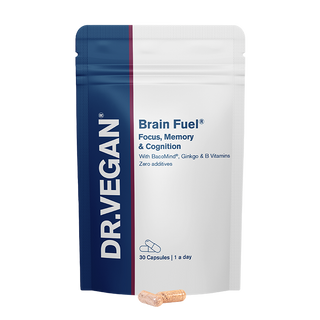Mushrooms and brain health

Are mushrooms and mushroom tea genuinely a nutritional powerhouse, or is this just another health fad?
Mushrooms, often regarded as a versatile ingredient in culinary creations, are gaining recognition for their potential to enhance brain health. Shona Wilkinson looks at the intriguing relationship between mushrooms and brain function, specific mushroom varieties known for their cognitive benefits and the rising popularity of mushroom teas.
Brain-supporting benefits of mushrooms
Mushrooms have been consumed for centuries for their medicinal properties and unique nutritional composition. Studies suggest that certain mushroom varieties can have a positive impact on various aspects of brain health, including memory, cognition and mood. You may be interested in reading how to clear brain fog.
What's your diet missing? Create your free Diet Profile.
Examples of mushroom types:
- Lion's Mane: This distinctive-looking mushroom is renowned for its potential to enhance memory and cognitive function. It contains compounds called hericenones and erinacines, which may stimulate nerve growth factor (NGF) production, crucial for brain cell maintenance and growth.
- Reishi: Known as the 'mushroom of immortality,' Reishi mushrooms are linked to improved mood and reduced anxiety. They contain bioactive compounds like triterpenes and polysaccharides, which may have anti-inflammatory and calming effects on the brain. Learn about the common symptoms of stress and 'How your diet can improve your mental health'.
- Cordyceps: These mushrooms have shown promise in supporting cognitive function and physical stamina, which is why they're also a key ingredient in Stay Calm™ which not only helps manage feelings of stress, but also brings a natural calm, balance, energy and focus. Cordyceps may enhance blood flow to the brain and promote oxygen utilisation, potentially aiding mental clarity and focus. You may be interested in learning more about 'Adaptogens that can change your life'.
Potential side effects
While mushrooms are generally safe for consumption, there are a few considerations to keep in mind.
- Allergies: Some individuals may be allergic to specific mushroom varieties, so it's essential to start with small amounts and monitor for adverse reactions.
- Digestive sensitivity: Mushrooms can be hard to digest for some people. Cooking them thoroughly can help mitigate digestive discomfort.
- Drug interactions: If you are taking medications or have underlying health conditions, consult with a healthcare professional before adding mushroom supplements to your diet, as they can interact with certain drugs.
The best mushroom for brain health
Lion's Mane stands out as one of the best mushrooms for brain health due to its potential to promote NGF production. This compound plays a crucial role in the growth, maintenance and survival of nerve cells. By supporting the health of neurons, Lion's Mane may enhance memory, cognitive function and overall brain vitality.
You may also be interested in reading the benefits of nootropics, 'Foods and vitamins to improve your brain' and '10 Foods & Supplements to Boost Brain Health'.
The hype around mushroom teas
Mushroom teas have gained popularity as a convenient and tasty way to reap the cognitive benefits of mushrooms. These teas typically incorporate dried or powdered mushroom extracts into hot water, creating a flavourful and potentially therapeutic beverage.
You may enjoy making our 'Mushroom Stroganoff (Ve)' recipe or 'Mushroom Satay Spaghetti (Ve)' recipe.

Do mushroom teas work?
Early studies and anecdotal evidence suggest that mushroom teas can offer some of the cognitive benefits associated with mushroom consumption. The heat from the tea may help extract bioactive compounds from the mushrooms, making them more readily absorbed by the body. However, it's important to choose high-quality mushroom extracts to ensure efficacy.
Mushrooms, particularly Lion's Mane, have garnered attention for their potential to enhance brain health by improving memory, cognition and mood. While they are generally safe for consumption, it's crucial to be aware of potential allergies and digestive sensitivities. The rising popularity of mushroom teas offers a convenient and enjoyable way to incorporate these brain-supporting fungi into your daily routine. Whether you choose to enjoy mushrooms in culinary dishes or as a soothing tea, their potential benefits for brain health can be worth exploring as part of a balanced and nutritious diet.
You may also enjoy reading:
- Foods That Can Negatively Impact Your Memory
- How stress and anxiety affects the heart
- Why your gut is your second brain
- Why BacoMind® will enhance your productivity
- Why the hype about Apple Cider Vinegar?
- Is oat milk good for diabetes?
Discover our range of award-winning vegan supplements and probiotics.
Want to hear more from our nutritionists? Sign up to our email newsletter for insights and exclusive offers:



















